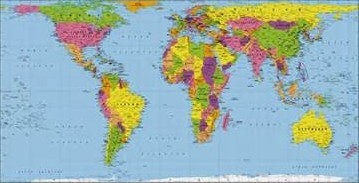Seeking Racial Justice is Personal and Political
QUOFLECTIONS™
ON SPIRITUALITY AND ETHICS
“Ignorance of how [good white
Americans] are shaped racially
is the first sign of privilege.”
Tim Wise, anti-racism educator
I am white. So what does the Department of Justice (DOJ) Investigation of the Ferguson Police Department mean to me and other whites?
We have heard the statistics: Ferguson, Missouri’s 67 percent African-American population is hit with 85 percent of traffic stops, 90 percent of tickets, 93 percent of arrests and 100 percent of police dog bites.
Meanwhile, Ferguson’s 29 percent white population has only 13 percent of traffic stops; 8 percent of tickets, 5 percent of arrests and zero police dog bites. Whites are primarily regarded as constituents to be protected; African-Americans are often viewed as potential offenders to be arrested. This policing disparity is one aspect of what sociologists refer to as ‘white privilege.’
These white-skin advantages are apparent from the prejudices enforced by police in many communities across the nation. As the DOJ documents regarding African-Americans, Ferguson police are “inclined to interpret the exercise of free-speech rights as unlawful disobedience, innocent movements as physical threats, indications of mental or physical illness as belligerence.”
Unlike African-Americans, whites do not experience these systemic misperceptions. Also, as the DOJ reports, Blacks, not whites, endure routine police violations of their constitutional rights under the first, fourth and fourteenth amendments.
Let’s get personal. I grew up middle class. Both of my parents had government-assisted college educations. So, unlike parents earning much less, my parents had the time and ability to prepare me well for entering school.
This white privilege expands as I attend suburban white schools with plenty of resources. Moreover, I never encountered the street crime and demoralizing discrimination suffered by urban Blacks. These advantages gave me a leg up when pursuing college and jobs.
Some of the systemic racism from which I benefitted was intentional, some not. But the accumulated effects are profound. In addition, we must consider the accumulated effects of historical racism.
My mom died a decade ago. When her estate was probated, my two brothers, two sisters and I each inherited $52,000.
What would I have received if I had been a member of a typical Black family? The 2010 census indicates average Black wealth is $4955. Even if double this figure, my four siblings and I would have received $2000 each. Isn’t inheriting 26 times this amount a substantial advantage? Will the next generation of Rixes likely benefit from this white advantage as well?
In short, I have experienced significant white privilege with regard to time spent with parents, educational advantages, employment preferences and, yes, ‘economic supremacy’. Instead of redlining and subprime loans regularly imposed upon Black families, many whites, myself included, are aided by government programs and banks providing favorable housing and lower mortgage rates.
This is the untold story of so many communities across our nation. Bigotry, racism and even passive advantages which impair Blacks have accrued to the benefit of whites like me.
So what can be done?
The answer is certainly not to sulk in white guilt. Instead, we who are white must acknowledge our privileges and conscientiously pursue ways to level the playing field.
Education, the greatest equalizer, is one key. Federal and state funding must increase significantly for poor communities of color. Colleges must once again realistically take race into account in their admissions policies. Subsidized housing must be increased, particularly for poor African-Americans. Horrendous Black unemployment and incarceration rates must motivate genuine reform.
But even these steps will not negate the historical effects of financial devastation experienced by African-Americans. Slavery was abolished 150 years ago. So why should white households still possess an average of 22 times the financial resources of Blacks? Doesn’t this gross economic iniquity and inequity indicate reparations are long overdue?
We who benefit from white privilege can admit our unjust advantages—and correct them.
©2015 Harry Rix. All rights reserved.
Related Articles
Appreciating the Prophet of Love
Does Racial Inequality Persist?
The Legacy of Slavery in Rhode Island
Reasons for Riots
Transforming Our Racist Culture
Faith and Love Can Heal Our Divisions

